If you’re looking for ways to boost your criminal defense law firm’s online marketing strategy and generate a swarm of new clients, then this article is for you. We’ll go over everything from the fundamentals to the components that will snowball into an increasingly effective strategy over time.
Determine Your Ideal Clients
A fundamental and core component to your law firm’s marketing strategy is getting crystal clear on who your target clients are. There are a number of criteria that will define your target clients, including their case type, demographic data and state of mind before hiring a lawyer and throughout their case’s process.
Focus on the Case Types You Want Most
Define the types of cases you want to attract most. If you do nothing else for determining your ideal client profile, this is critical. Criminal defense work involves a range of different criminal charges, from misdemeanors to serious felonies, including:
- Assault and Battery charges
- Domestic Violence
- Drug charges
- DUI / DWI
- Fraud
- Juvenile charges
- Sealing and expungement
- Stalking / Injunctions
- White Collar crimes
These are just a few of the broad categories. List out all of the types of cases that you can think of and assign them a score between 1 and 5 (5 being most desirable).
What are the motivating factors for signing these types of cases? Is it because the average case value is higher, they’re easier to sign up or do you prefer just handling DUIs, possession charges because you prefer handling that type of work.
Understanding your desires is important because there can be tradeoffs between taking less serious cases, average case value and cost to generate a new case.
Perform Competitive & Demographic Analysis for Your Primary Case Types
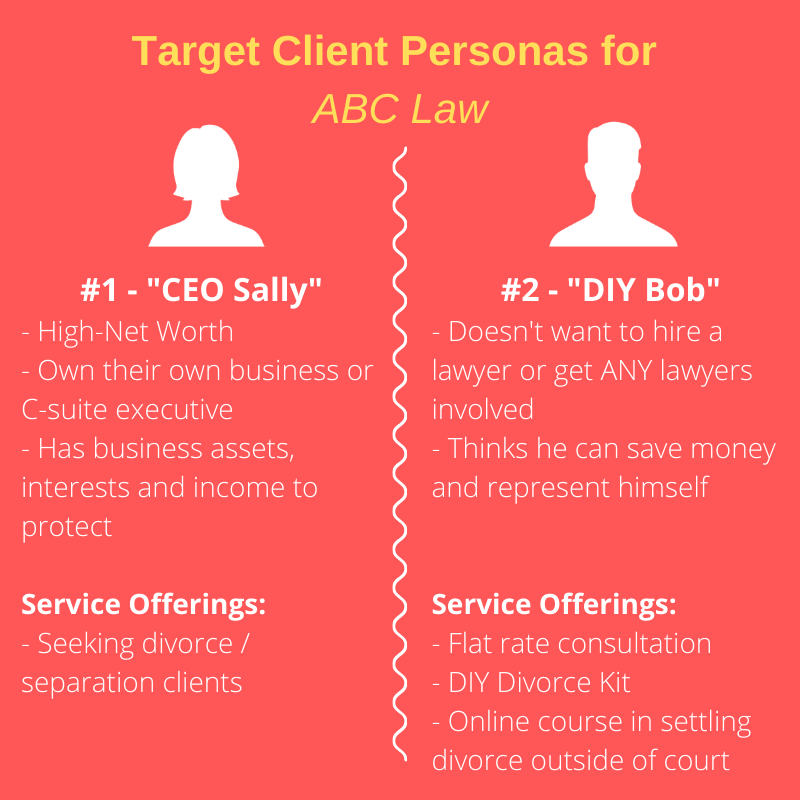
Create personas for your target clients.
- How old are they, what’s their gender, profession and what is their level of income?
- Do they rent or own?
- What areas do they typically live in?
States and their respective metropolitan areas might be more prone to certain types of crimes than others. Finding out what nearby areas are most likely to yield these types of cases is important. When analyzing the different areas with your target case types, conduct a competitive analysis to determine whether the market’s saturation (i.e. is it underserved or overserved with criminal defense attorneys?)
Your Client’s State of Mind
After you’ve defined your ideal case types and some basic data points about the clients that you’ll sign for those cases, consider their behaviors and state of mind before hiring you.
What typically leads them to face the charges they do? For instance if it’s a computer-related crime, they typically are computer-savvy.
If they are charged with a DUI, do they have a proclivity to drink and drive or is this someone who made a one-time mistake? Are they grateful to hire a lawyer to help them or are they price-hunting for the cheapest DUI attorney around?
What are the main questions they’re asking you?
What are they searching for online, what information are they searching for?
These are some of the questions you want to ask to define your client’s state of mind and persona to tune your marketing message.
Position Yourself in the Market as the “Expert” on your types of Criminal Charges
Based on the target types of cases you determined above, use this to position yourself in your local market.

Draw attention to those case types on your website and write sales copy that addresses those criminal charges as well as issues, problems and remedial action you can take to assist them.
Define the primary challenges and issues they’re facing due to criminal charges. Describe what the charges they’re facing will mean in terms of living, mobility and career options in the future if they are convicted.
Your sales copy should include the primary benefits and differentiating aspects of hiring you instead of your competition (i.e. former prosecutor, former public defender, former law enforcement, years experience practicing criminal law, # of trials, etc.)
Design your Website for Content, Exceptional User Experience & Conversions
Your website should be designed to provide a top-notch user experience, publish and promote content that will drive more online traffic and optimized to convert as many quality leads as possible.
Mobile-First Design
A key element to a successful user experience is developing your site with a mobile-first design.
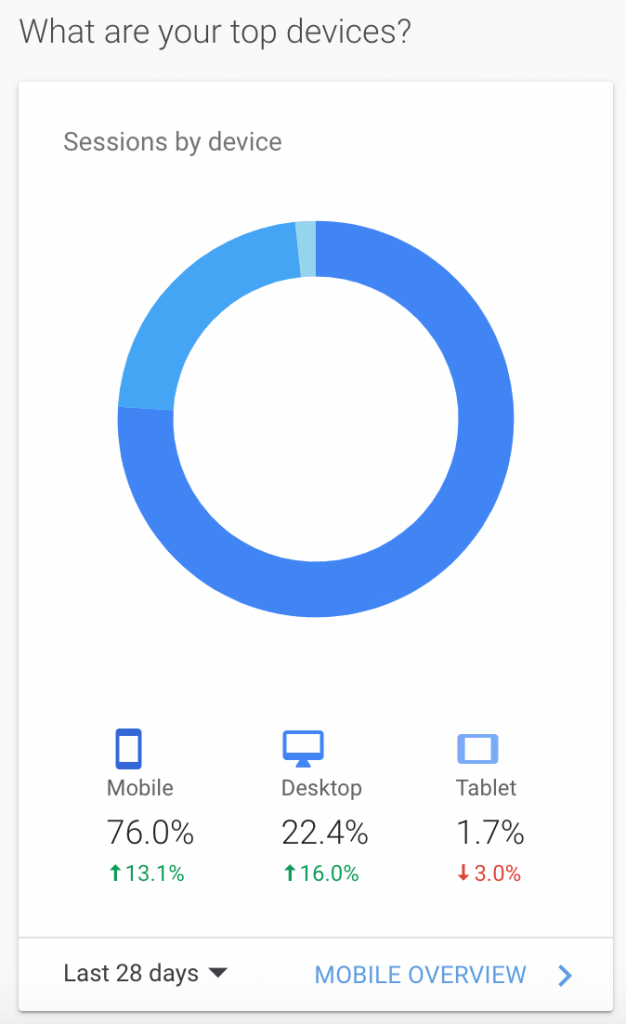
More than half of all your website traffic will likely come from a mobile device or smartphone. As a result, it’s important that your website is designed for a portrait orientation mobile device first and foremost. When considering all of the content and design elements of your site, they should be placed for smartphones first and a columnar view.
As you design for tablets, laptop and desktop screens, you can create a more sophisticated design and user experience, however mobile should be your top priority.
With Mobile, Comes Speed
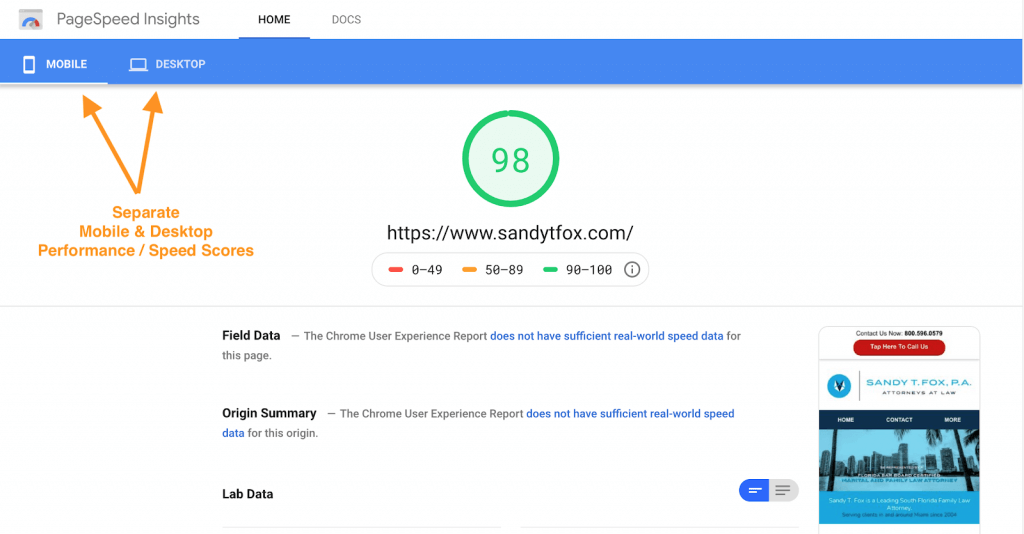
Google is placing more emphasis on the speed of a website.
Does it matter?
It used to matter less, but Google is incorporating speed as a critical component of their search engine ranking signals with the release of the Core Web Vitals update in mid 2021.

Make sure that your designer understands this update and the implications of your website’s code to ensure it’s optimized to peak performance and pass these tests for speed.
It can be difficult to optimize a site for speed properly. The more speed and performance optimization features you incorporate into your design, the more bugs and glitches this can lead to, which could directly conflict with your user’s experience. Speed is important, but it won’t matter how fast it is if it’s unusable.
Built for Your Content Hub & Publishing Needs
Determine the types of content you plan to publish and host on your website.
Make it clear in your law firm’s marketing plan whether you will create a simple website with about pages, attorney profiles and practice area service pages or something more geared towards generating massive traffic, including a help centre or content hub with weekly blog posts and info articles.
If you plan on implementing the latter into your marketing strategy in the foreseeable future, design your website for this content in mind. Have your web designer determine where in the layout of the website’s navigational and structural elements this content will be linked and how it will be presented.
Come up with a plan to have this content generate more leads and cases for your firm.
Leverage Your Social Proof
A key to getting more potential clients to call you is through the use of social proof on your website and other marketing materials.
Reviews from online platforms and social media including Google, Facebook and Avvo can be hugely beneficial.
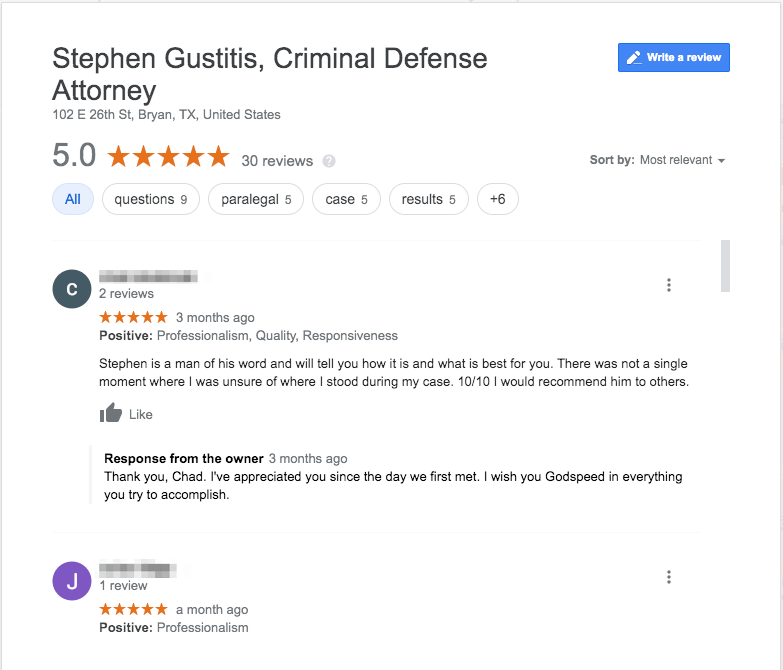
Google reviews will be the primary source of reviews to appear on your profile and listings in Google’s search results. They also play a factor in local and web search rankings.
You can list these reviews as well as any written or emailed testimonials on your website to boost trust and credibility.

There are many other helpful forms of social proof that can assist your image, including featuring successful case results, your firm’s stats and numbers (i.e. years of experience, number of trials or cases handled, 24/7 availability, number of attorneys or offices, etc.).
Badges and awards can help your perceived image by visitors, including the “featured on” or “as seen on” logos for news channels, radio, journals and other publications.
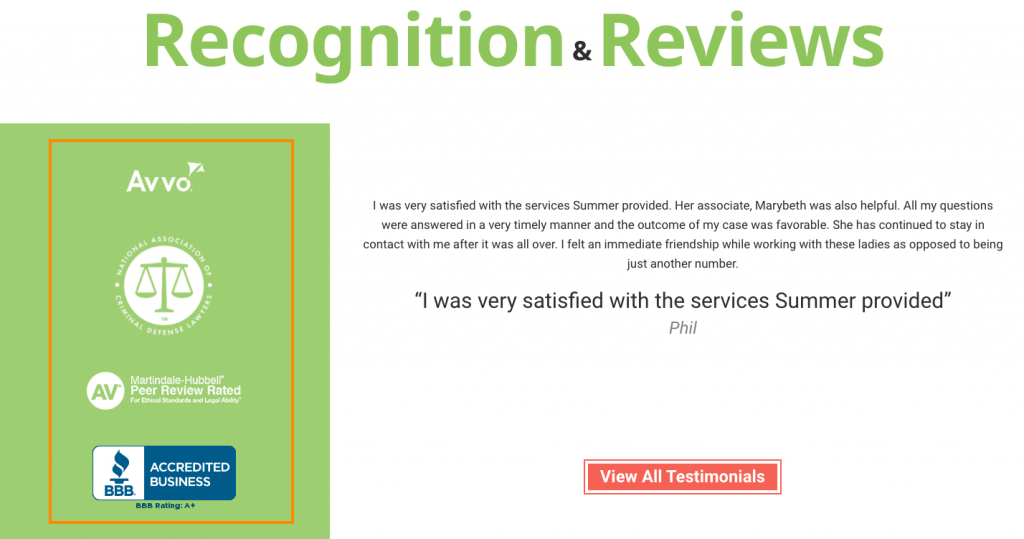
Badges and awards from Avvo, Best Lawyers, SuperLawyers, BBB and board certifications should be featured prominently on your site, too.
Publish and Promote Helpful Content & Resources
Content Marketing is one of the most effective channels being used in modern online marketing today. Driving more traffic to your site will result in more leads and clients.
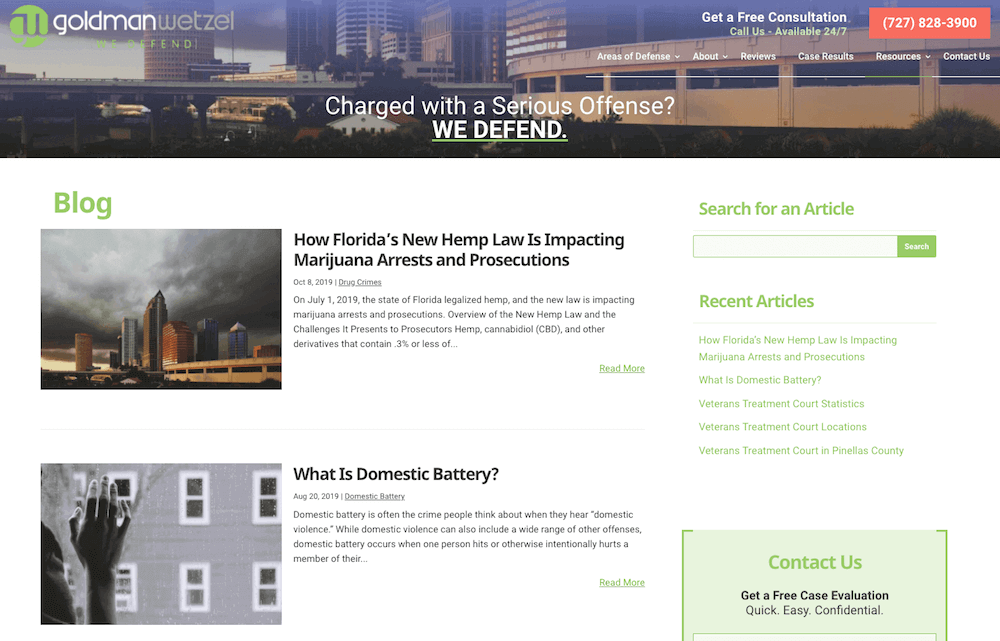
Your content marketing strategy can consist of publishing blog posts and helpful informational articles or creating more in-depth guides on a particular criminal defense topic or even producing videos or “vlogs”.
Create a plan that incorporates the types of content that will support your marketing strategy for both traffic and lead acquisition. Types of content to consider include:
- Articles & Blog Posts
- Videos
- Guides
- Resource Pages
- Unique Content Assets (e.g. Glossary of Criminal Legal Terms, Infographics, Statistics, etc.)
- eBooks & Lead Magnets
Once you’ve determined the content types you will publish, plan on how you will distribute and promote them as well as the estimated results for each, so you can measure actual results later and adjust your content strategy accordingly.
Come up with a content creation schedule to create resources on a consistent basis to maximize your results and ensure you keep up with creating content in the long haul.
Develop a Search Traffic Strategy
There are a few different types of search engine traffic available:
- Paid
- Organic
- Local
Which is right for you? It could be all three or as few as one. Search engine marketing is becoming increasingly popular and competitive.
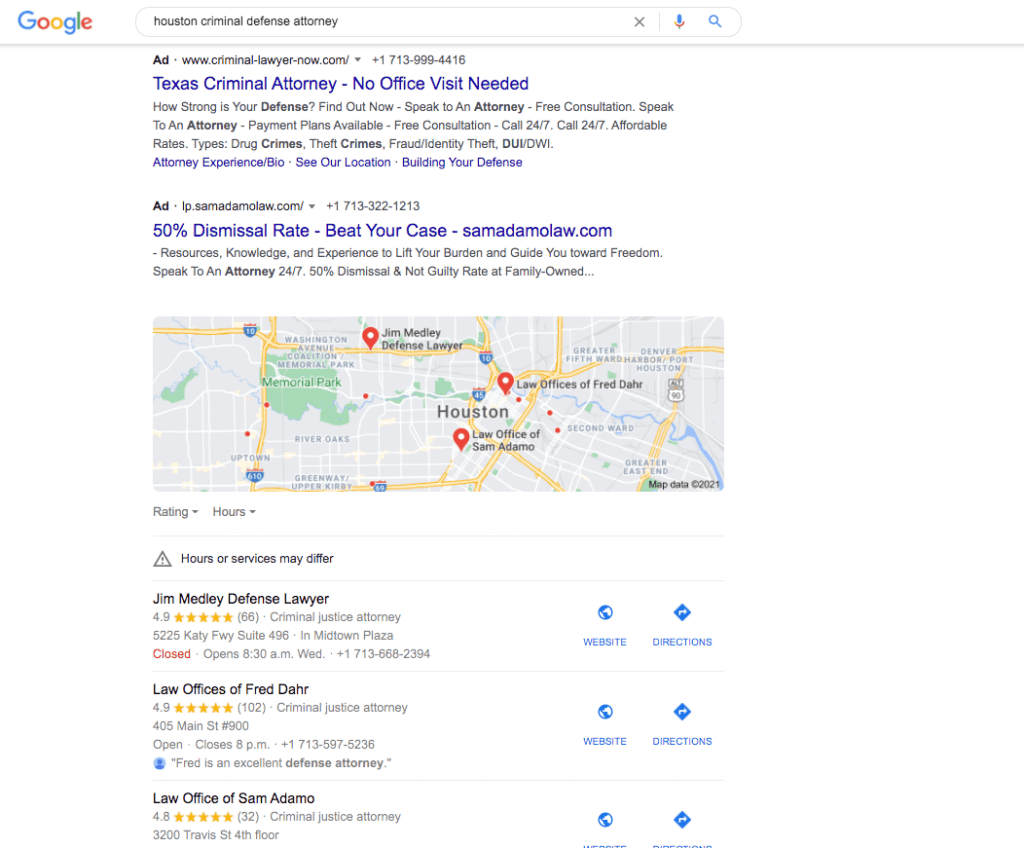
Search engine optimization and paid search can be expensive. However, there’s a good reason for this: because other lawyers are willing to pay for it. We’ve all heard the saying “you get what you pay for” and it’s true when it comes to search.
78% of law firms that participated in a Martindale survey said that either search or social media were their best marketing channel.
Getting the results means competing with other law firms for the highly valuable and limited virtual real estate on page one of the coveted search results that will bring you heaps of new traffic and cases. You can pay to play with PPC search ads or LSAs as well, which can be effective for driving traffic as soon as possible if you choose not to wait the required time from attorney search engine optimization to see your ROI.
Become a Market Leader: Build Your Firm’s Authority & Prominence
Without a doubt, being in the right places as well as everywhere else possible will help you generate more clients. It can also help you develop an authoritative name in the market and make you a leader for local top of mind.
This can be done both online and offline.
For years it was your presence on radio, TV, phone books and billboards that determined your status in the market. While those channels are still heavily occupied by lawyers, online is becoming overwhelmingly important.
The same principle applies online. Many of the top legal directories and attorney referral services can help boost your online, local presence which can have the same effects. All else being equal, the more touch-points you prominently occupy online, the more presence and brand awareness you’ll generate.
You can do a lot of this organically by optimizing your Avvo, Justia and FindLaw profiles (to name a few) as well as your Google, Bing, Yelp and Facebook profiles. Drive reviews to all of them, with an emphasis on Google, Avvo, Facebook and Yelp.
These can help put you at the top of the pile for multiple search result listings on page 1, including your own website and Google listing.
As your firm’s name receives more attention over time, this can help power up your SEO. Your brand’s search volume is a ranking factor for localized search results, so use this and leverage it to generate more traffic and business overtime.


